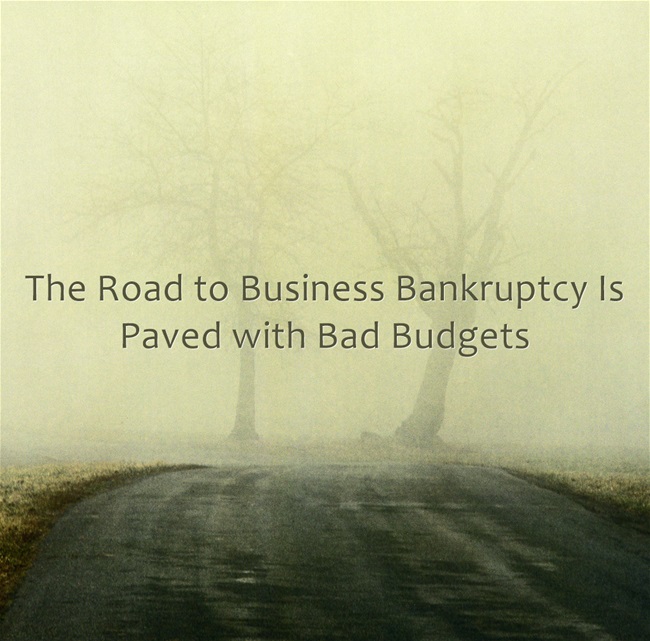 Business owners who do not like to talk about, put together or follow a budget are more common than one may think. If left too long, the situation degrades into a position where owners are on the brink of bankruptcy because they did not develop or follow a budget.
Business owners who do not like to talk about, put together or follow a budget are more common than one may think. If left too long, the situation degrades into a position where owners are on the brink of bankruptcy because they did not develop or follow a budget.
One major reason that businesses fail is that their owners were simply not prepared or equipped to run them. They did not have the necessary skills or have acquired the knowledge to successfully manage all the intricacies of running a business. This lack of skills was not a function of intelligence or ability – it was merely a lack of training.
(Sidebar – No one has ever achieved success by himself. It is not a character flaw to need help. It becomes a character flaw to know you need help and not ask for it.)
Budgeting is one of the places where this lack of training is seen the most often, which is unfortunate. A budget is vital to the operation of your company, and its long-term sustainability. It will help you manage: cash flow, capital investments, ROI, cost of goods sold, break-even points, overhead costs and profit margins. It can make the difference between staying open or closing the doors.
Here are three ways a budget can help you meet and exceed all your business goals:
You know how to go forward
A budgeting system is a map that shows where you have been, where you are and where you are going. A business is not static; it is very easy to get side-tracked or lose your way entirely. A budget will help keep you on the right track and give you directions on how to get where you want to go.
You have an excellent operational tool
When used correctly a budget is a great management tool, which uses real-time facts and figures. If you review, update and revise it on a monthly basis with your management team you can:
- Control performance, productivity, costs, profit, projects, and revenue; rather than them controlling you.
- Follow your sales to meet current and future demand. What is in the pipeline? Do you need more or less resources (i.e., materials, staff, inventory, money)?
- Keep costs down. Where are the expense over-runs (i.e., crews, products, machine output, projects)? Is your profit margin within the expected range? How are your collections/receivables?
- Minimize taxes by planning for: capital expenditures, allocation of bonuses/incentives and funding retirement programs.
- Tie incentives/bonuses to budget performance. This is a good way to get employees serious about budgeting, and invested in the business’s profitability.
You can positively respond to problems
Have you ever tried to fix something and made it worse? Of course you have – who hasn’t?
When stuff happens, and unexpected events occur, you can choose to react in a strong, practical manner or suffer consequences of inaction or a weak reaction. A budget can help you avoid making mistakes when things do not go as planned. It decreases or eliminates panic and uncertainty, and helps guide you to making good decisions because you know exactly what is going on in your company. You and your team can make good decisions with the in-depth knowledge collected from your monthly budget reviews. You can make changes – and immediately monitor their impact – based on facts, not feelings or guesses.
It is true – a budget is hard to start and maintain, but then so is your business. Remember, the reason many businesses fail is that their owners are not prepared to do the required work.
Let’s give Lou Holts the last word: “Winners embrace hard work. They love the discipline of it, the trade-off they’re making to win. Losers, on the other hand, see it as punishment. And that’s the difference.”
At Cogent Analytics, we never stop looking for ways to improve your business and neither should you. Check out these some more posts that you may find helpful:



